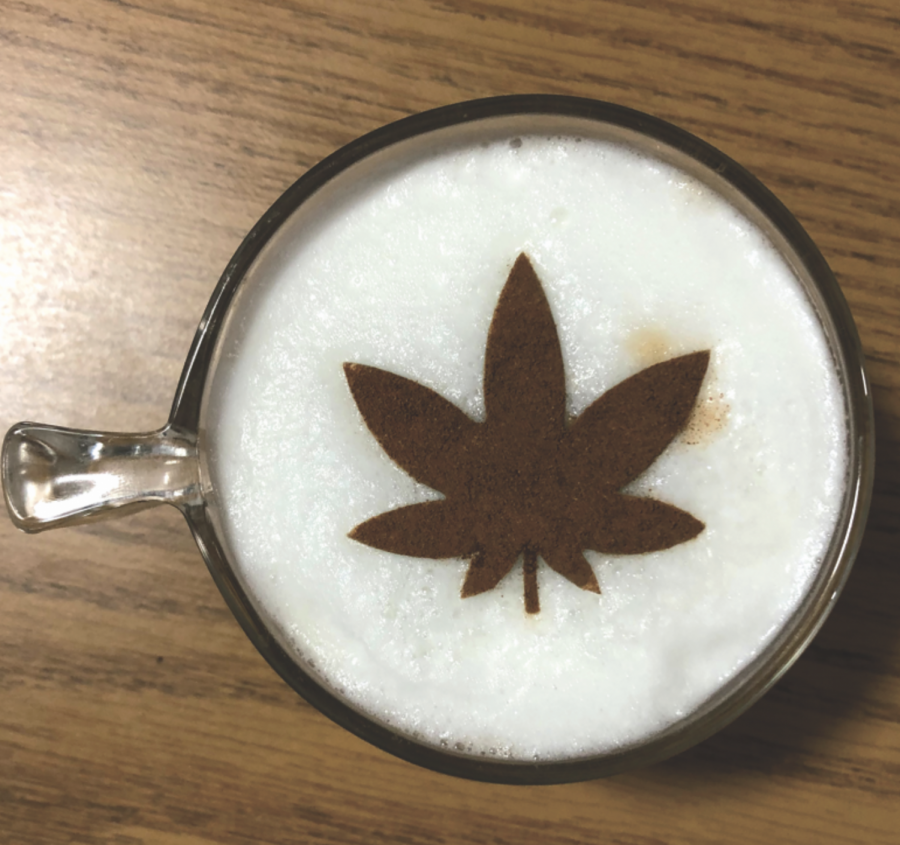What’s the Hype with CBD?
February 5, 2019
Cannabidiol (CBD) is one of the two active ingredients in marijuana. On its own, CBD does not cause the characteristic high of marijuana, yet the World Health Organization (WHO) has acknowledged CBD as an effective treatment for epilepsy and claimed CBD “may be a useful treatment for a number of other medical conditions.” Most significantly, clinical researchers have started preliminary research into CBD’s effects on anxiety, depression, pain and sleep. In addition to research, the first pure CBD pharmaceutical has already made it to market.
On June 25, 2018, the Food and Drug Administration (FDA) approved the use of Epidiolex, a prescription drug Greenwich Biosciences markets towards children and adults who are unresponsive to conventional anti-seizure medications.
Besides its use in epilepsy, CBD’s effects on anxiety and sleep show great promise as well. For instance, a study of patients with anxiety disorders showed a rapid decrease in their symptoms after taking doses of 25 mgs per day.
CBD tends to have a sedating effect at high doses and a stimulating effect at low doses. The Journal of Clinical Pharmacology published a study of insomniacs who experienced increased time asleep and fewer sleep disturbances with 160 mgs per day.
Two other important studies uphold these findings. One of these studies published in Neuropharmacology discovered that CBD increased REM sleep, a form of deep, restorative sleep, in patients with anxiety. The other study reported a decrease in sleep disturbances among post-traumatic stress disorder patients who consumed CBD oil.
In terms of safety, the WHO has stated, “CBD exhibits no effects indicative of any abuse or dependence potential … CBD is generally well tolerated with a good safety profile.” That is, no evidence confirms that CBD is addictive on its own, and generally, CBD does not pose any major, detrimental effects on human health.
The most common side effects are nausea, irritability and fatigue. Nonetheless, study after study has emphasized the need for more randomized clinical trials of CBD to truly assess its effects on humans beyond the treatment of epilepsy.
CBD can be taken orally or topically, meaning that it can enter the body through the mouth or the skin. CBD regularly comes in an oil, but you can consume it in coffee, tea, candy and smoothies. Even shops like Gregory’s Coffee, on the corner of 69th Street and 1st Avenue, sells a CBD latte with oat milk and a dash of strawberry syrup.
The real danger with most CBD products on the market is that they are regulated like supplements. The FDA plays no role in the regulation of dietary supplements like vitamins, so the company distributing them is responsible for the safety and purity of these supplements. Some CBD manufacturers could incorrectly label the CBD content on their products, and others may not test for purity or content at all.
The explosion of CBD products can be linked to a new classification of hemp, a variety of Cannabis sativa grown primarily for its industrial uses. Hemp products take on various forms, but hemp’s most common use is in textiles.
At any rate, President Trump signed the 2018 Farm Bill into law on Dec. 20. This new Farm Bill, according to Robert A. Mikos of Vanderbilt Law, makes huge implications for the legality of CBD through its new definition of hemp. Though CBD was not explicitly legalized, the bill defined hemp as any part of the Cannabis sativa plant that contains less than .3 percent tetrahydrocannabinol (THC).
The Controlled Substances Act (CSA) makes no mention of CBD or THC; the CSA only deems the buds, seeds and germinating seeds of the plant as marijuana. Thus, the CSA makes no explicit restrictions upon CBD or THC. Moreover, CBD extracted from hemp, which is no longer considered marijuana, is legal under federal law.
Fordham Residential Life must uphold state and federal law, according to the Senior Director of Residential Life, Jenifer Campbell, and marijuana products, as spelled out under the CSA, are not permitted under federal law. Nevertheless, Campbell commented, “laws continue to evolve and different items continue to be developed, so any student who believes they have a medical need should contact the Office of Residential Life to discuss their situation.”
Campbell’s words shed a light of possibility on the future of CBD and marijuana products as a whole. Perhaps there will be a day when your RA won’t confiscate your CBD gummies. Instead, they’ll pop a couple with you.











